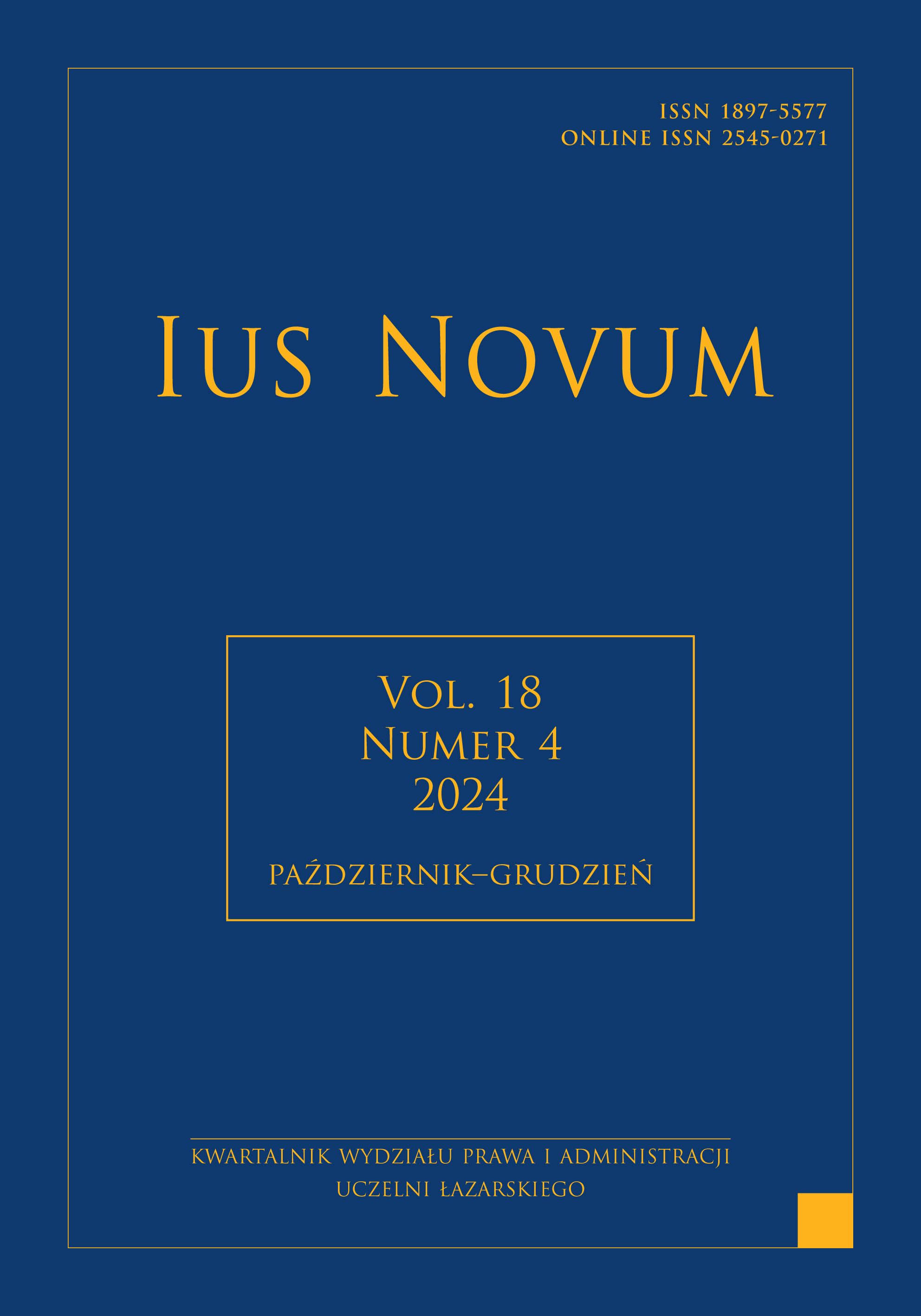Abstract
This study focuses on the issue of evidentiary proceedings before the appellate court in the Polish criminal procedure. As a result of the considerations carried out, the author expresses approval of the position of the Supreme Court, in the light of which the appellate court, in the event of finding specific content deficiencies in part of personal and non-personal evidence, is not only authorized, but also obliged to conduct evidentiary proceedings autonomously. The provision of Article 452 of the Code of Criminal Procedure is the fundamental criterion for assessing the validity of the view expressed in this way. The application of the historical method in the process of its interpretation means that the circumstance of repealing the first editorial unit of Article 452 of the Code of Criminal Procedure, in the light of which “the appellate court may not conduct evidentiary proceedings as to the substance of the case”, influenced the establishment of the principle of conducting evidence as to the substance of the case by the appellate court in this way. The argumentation in this respect is enriched by the joint interpretation of Article 427 § 3 of the Code of Criminal Procedure in connection with Article 452 § 2 and 3 of the Code of Criminal Procedure.
References
Doda Z., Gaberle A., Kontrola odwoławcza w procesie karnym. Orzecznictwo Sądu Najwyższego. Komentarz, Warszawa 1997.
Fingas M., Orzekanie reformatoryjne w instancji odwoławczej w polskim procesie karnym, Warszawa 2016.
Funkcje procesu karnego. Księga Jubileuszowa Profesora Janusza Tylmana, red. T. Grzegorczyk, Warszawa 2011.
Kaftal A., W sprawie modelu środków odwoławczych, „Państwo i Prawo” 1973, nr 8–9.
Klejnowska M., Glosa do postanowienia SN z dnia 15 października 2003 r., III KK 271/02, „Państwo i Prawo” 2004, nr 9.
Kotowski A., Skarga nadzwyczajna na tle modeli kontroli odwoławczej, „Prokuratura i Prawo” 2018, nr 9.
Kwiatkowski Z., Evidentiary Proceedings Before an Appellate Court in the Polish Criminal Trial, „Ius Novum” 2016, nr 2.
Marszał K., Glosa do uchwały SN z dnia 24 stycznia 2001 r., I KZP 47/2000, „Państwo i Prawo” 2001, nr 10.
Mierzejewski Z., Reguły ne peius z art. 454 k.p.k. po zmianie modelu postępowania odwoławczego w sprawach karnych – uwagi de lege lata oraz de lege ferenda, „Przegląd Sądowy” 2019, nr 9.
Postępowanie odwoławcze w procesie karnym – u progu nowych wyzwań, red. S. Steinborn, Warszawa 2016.
Świecki D., Apelacja w postępowaniu karnym, Warszawa 2012.
Świecki D., Bezpośredniość czy pośredniość w polskim procesie karnym. Analiza dogmatycznoprawna, Warszawa 2013.
Świecki D., Glosa do postanowienia SN z dnia 15 października 2003 r., III KK 271/02, „Orzecznictwo Sądów Polskich” 2004, nr 9.
Świecki D., Konstrukcja apelacji jako środka odwoławczego w procesie karnym, Warszawa 2023.
Waltoś S., Model postępowania przygotowawczego na tle prawnoporównawczym, Warszawa 1968.
Woźniewski K., Glosa do postanowienia SN z dnia 4 stycznia 2005 r., V KK 388/04, „Gdańskie Studia Prawnicze – Przegląd Orzecznictwa” 2005, nr 3.

This work is licensed under a Creative Commons Attribution-NonCommercial-ShareAlike 4.0 International License.
Copyright (c) 2024 Uczelnia Łazarskiego w Warszawie, Polska

